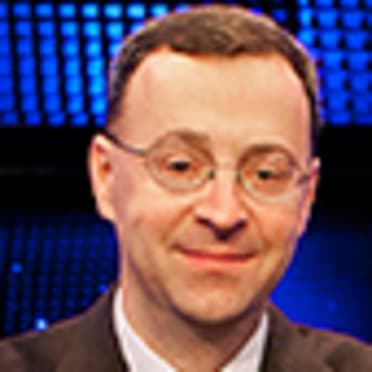Cubs instructional league prospect report
After the completion of the regular season and alternate training sites, most player development staffs have turned their attention to instructional league play. In the past, instructional leagues have been populated by new draftees, recent international signings and players at the bottom rungs of their organizational ladder. This year, in an attempt to make up for lost time due to the pandemic, it’s been expanded to include many more players. MLB Pipeline will be providing position-by-position reports from instructional league camps in Florida and Arizona.
Pitchers (20)
Cory Abbott, RHP (No. 12); Josh Burgmann, RHP; Danis Correa, RHP; Chris Clarke, RHP (No. 17); Brad Depperman, RHP; Manuel Espinoza, RHP; Richard Gallardo, RHP (No. 20); Jose Gonzalez, RHP; Bryan Hudson, LHP; Gabriel Jaramillo, RHP; Ben Leeper, RHP; Luke Little, LHP; Joel Machado, LHP; Erling Moreno, RHP; Koen Moreno, RHP; Eduarniel Nunez, RHP; Bailey Reid, RHP; Peyton Remy, RHP; Cam Sanders, RHP; Jerrick Suiter, RHP
Many of Chicago's best pitching prospects reached their innings limits via work at the alternate training site, live batting practices and bullpens during the summer, so they didn't participate in instructional league play. Several of those arms, including right-handers Kohl Franklin and Ryan Jensen and left-hander Burl Carraway, did go to the organization's training site in Mesa, Ariz., to check in with the Cubs' pitching lab and their strength and conditioning coaches.
One pitcher who has stood out in instructional league action is Bryan Hudson, who has struggled to find consistency since signing for $1.1 million as a third-round pick in 2015. The 6-foot-8 southpaw missed most of the '19 season with a stress fracture in his back, but he's looked as good as ever this fall.
"With most 6-foot-8 pitchers, it takes them longer," Cubs farm director Matt Dorey said. "His stuff has been very good and he has done a lot of good work with his delivery and sequencing. We're trying to get him to be more athletic. He's a very good athlete who played high school basketball, but it hasn't always translated to his delivery.
"He's using his lower half and using that frame to throw downhill. He's been up to 95 mph. He's always been able to spin the ball, and now he's holding his velocity and throwing more strikes."
Catchers (5)
A year ago, Chicago landed both the best high school catcher in the Draft (Ethan Hearn, a sixth-rounder who signed for $950,000) and the top backstop on the international market (Ronnier Quintero, who inked for $2.9 million out of Venezuela). They haven't been on the field much yet; Hearn played just 23 games last summer after turning pro and Quintero hasn't made his debut.
Hearn is more advanced than Quintero because he's two years older and had access to facilities to get more work done during the layoff this summer. The Cubs have liked what they've seen from their young catchers in Mesa.
"Hearn has been great," Dorey said. "He came in in really good shape, very strong and he's always been athletic. He's taking good at-bats, receiving really well and has quieted down behind the plate.
"Ronnier has a really sweet swing. We've backed him off from a lot of game action because we've had him on a throwing program because he hasn't played a lot of competitive baseball since last summer."
Infielders (11)
The Cubs were excited to find Ed Howard available with their first-round choice (No. 16 overall) in June. A hometown product who led his Chicago team to the 2014 Little League World Series finals, he was the best shortstop in the '20 Draft. He's a smooth defender with athletic actions and a strong arm, and he also has a simple right-handed swing and developing power.
Chicago's scouting director before becoming farm director, Dorey had seen Howard at workouts earlier in his high school career. Besides Howard's obvious tools, Dorey also noted his physical and mental maturity.
"I always knew he was a very gifted defender but he wasn't really strong the last time I saw him," Dorey said. "I'm really surprised at how physical he is now. He's strong in his shoulders and back and he's really hitting the ball hard in BP, making good swing decisions.
"I could gush about his tools all day. But I'm also very impressed with his makeup and maturity and high baseball IQ."
Outfielders (10)
Signed for $1.2 million as a supplemental second-rounder in 2018, Cole Roederer had a strong pro debut but struggled when he got to full-season ball the following year. Class A pitchers recognized his aggressiveness and exploited it with a steady stream of changeups. He made progress with letting his power come naturally during the second half of '19, and Chicago has had him concentrate on doing the same in instructional league play.
Roederer moved from California to Arizona so he could be closer to the Cubs' training site, and he reported to instructs with increased strength.
"The big thing for Cole is not selling out for power to his pull side," Dorey said. "He hit a long home run at our big league park the other day, and he has enough power to get himself in trouble. He is making better decisions on changeups and offspeed pitches.
"That's really been the focus, working more to the middle of the field. His power will happen organically and he doesn't have to manufacture it. He's also playing a great center field like he always has."
